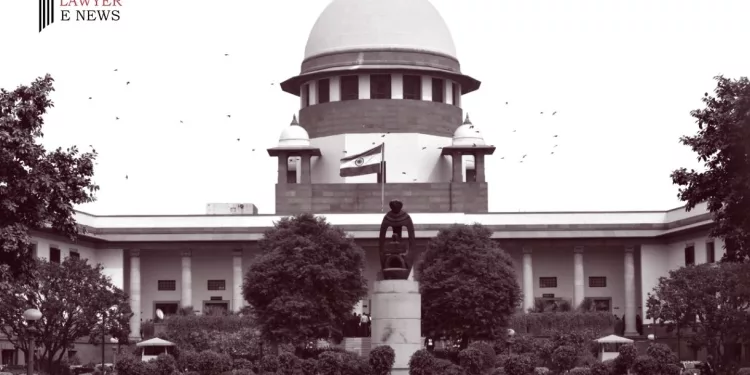Supreme Court Quashes Criminal Complaint U/S 138 N.I. Act , Emphasizes Specific Averments in Corporate Liability Cases

In a significant ruling, the Supreme Court of India has quashed a criminal complaint while underlining the necessity of specific averments in cases involving corporate liability. The judgment, delivered by a bench comprising Justices C.T. RAVIKUMAR and Sanjay Kumar, dealt with an appeal challenging the refusal to quash a complaint filed under Section 138 of the Negotiable Instruments Act, 1881 (NI Act).
The appellant, accused No. 4 in the case, contended that the complaint against him should be quashed on two grounds: first, he had resigned from the partnership firm before the issuance of the cheque in question, and second, the complaint lacked the mandatory averments required under Section 141(1) of the NI Act.
The High Court had declined to quash the complaint, holding that the issue of the appellant’s retirement from the partnership firm was a matter of evidence that needed to be proven at a later stage.
However, the Supreme Court’s judgment delved into the intricacies of corporate liability under Section 141(1) of the NI Act. The Court emphasized that specific averments were crucial to establish vicarious liability. It ruled that mere management of a company’s affairs did not automatically render an individual responsible for its conduct.
In the judgment, the Court stated, “A bare perusal of Section 141(1) of the NI Act reveals that only that person who, at the time the offence was committed, was in charge of and was responsible to the company for the conduct of the business of the company shall be deemed to be guilty of the offence.”
The judgment further clarified that the words “was in charge of” and “was responsible to the company for the conduct of the business of the company” should be read conjunctively.
Supreme Court found that the averments in the complaint were insufficient to establish the mandatory requirements under Section 141(1) of the NI Act. As a result, the appellant’s appeal was allowed, and the criminal complaint against him was quashed.
The Supreme Court’s ruling underscores the importance of precise averments in cases involving corporate liability under Section 138 of the NI Act. This decision provides clarity on the requirements for establishing vicarious liability, thereby setting a precedent for future cases in this domain.
Date of Decision: October 10, 2023
Siby Thomas vs M/s. Somany Ceramics Ltd.






